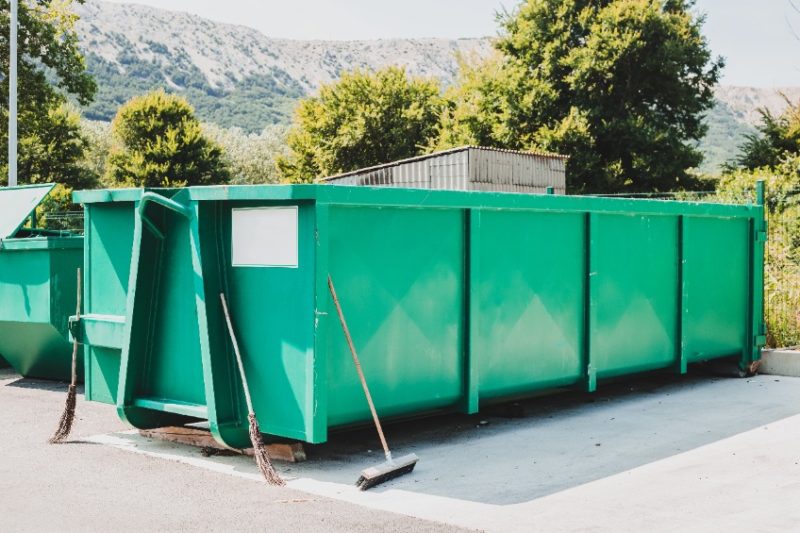Are Residential and Commercial Dumpster Rental Guidelines The Same?
Are you planning to rent a dumpster for your next home improvement project or a commercial venture? If so, you may be wondering if the guidelines for residential and commercial rentals are the same. While some similarities exist between the two, some important differences also exist that you should be aware of before making your decision. This article takes a closer look at both types of rentals so that you can choose the right option for your needs.
Residential Dumpster Rental Guidelines
Dumpsters are a great way to dispose of large amounts of trash, but it is important to follow the guidelines set by your rental company. Most residential dumpster rental companies have a few basic rules that everyone should follow.

Dumpster Rental Guidelines are explained here
First, be sure to load the dumpster evenly. This means placing heavier items on the bottom and lighter items on top. Second, do not overfill the dumpster. The weight of the contents can cause the dumpster to collapse, making it difficult to empty. Finally, be careful what you put in the dumpster. Hazardous materials like paint and oil should never be placed in a residential dumpster. By following these simple guidelines, you can make your next project go smoother and avoid any unnecessary fees.
Commercial Dumpster Rental Guidelines
Commercial dumpster rental guidelines vary depending on the company you rent from, but there are some general things to keep in mind. First, make sure to choose a size that is appropriate for your needs. If you rent a dumpster that is too small, you may end up having to make multiple trips to the dump, which can be costly and time-consuming. On the other hand, if you rent a dumpster that is too large, you may end up paying for space that you do not need. Second, be sure to read the terms and conditions of your rental agreement carefully. Some companies charge extra for things like weight limits or extended rental periods, so it is important to be aware of these charges upfront. Finally, make sure to ask about any special instructions for disposing of certain items. For example, some businesses require customers to dispose of hazardous materials in separate containers.
Factors to Consider When Deciding Between Residential and Commercial Dumpsters
Different types of dumpster rental guidelines exist, depending on the type of facility or property you are trying to dispose of waste material. However, one common factor among all dumpster rental guidelines is that you must have a dumpster on-site in order to dispose of your waste correctly. While this may seem like a simple enough task, there are actually quite a few factors to consider when choosing a dumpster for your needs.
First, you need to decide what size dumpster you will need. This will be determined by the amount of waste you have to dispose of. If you have a large amount of waste, you will need a larger dumpster. Secondly, you need to determine what type of dumpster would be best for your needs. There are several different types of dumpsters available, including open-top and closed-top units. Be sure to choose the type that best fits your needs.
Next, you need to determine how often you will need to use the dumpster. For example, if you only plan to use it once a week, then a weekly rental may be sufficient. On the other hand, if you anticipate using it multiple times per week or even daily, then a monthly or yearly rental may be more appropriate. Finally, be sure to ask about any additional fees associated with the rental agreement. These fees may include delivery charges, fuel surcharges, and environmental fees. By asking about this upfront, you can avoid any unexpected expenses later on.
Are Residential and Commercial Dumpster Rental Guidelines The Same?
There are a few key differences between residential and commercial dumpster rental guidelines. For one thing, commercial dumpsters are typically larger in size than residential ones. This is because businesses tend to generate more waste than households do. Another difference is that commercial dumpsters are often rented on a longer-term basis than residential ones. This is because businesses generally have a steadier stream of waste than households, which tend to generate waste sporadically. Finally, commercial dumpsters may be subject to different regulations than residential ones. This is because businesses typically produce more hazardous waste than households produce, and therefore need to follow stricter guidelines in order to protect the environment.
While both residential and commercial customers need to follow regulations when renting a dumpster, there are some key differences between the two. Commercial customers may be subject to additional fees or permits, and they will likely need a larger dumpster than a residential customer. For more information on renting a dumpster for your home or business, contact your local waste management company.

